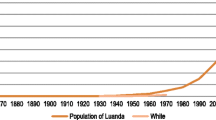Abstract
The availability of urban voids that have characterized Berlin’s urban landscape since the Second World War until the early 2000s has emerged as a tradition of spontaneous appropriation of space. This shift in discourse, promoted by the city senate and the economic growth, has been the focus of Berlin’s more recent urban development. It created completely different conditions, where competition for available land has become more and more acute. The new pressure on the land has made it increasingly difficult for urban entrepreneurs, who, in order to maintain projects started in the 1990s and 2000s or to begin new ones, have had to elaborate strategies and reconfigure themselves according to the competitive positioning and maximization of value imposed by neoliberalism logics. Our observation of the three case studies of Holzmarkt, RAW Gelände and Haus der Statistik analyses the transformations and strategies that urban pioneers had to develop in order to survive with their projects in relatively central areas of the city of Berlin.
Access this chapter
Tax calculation will be finalised at checkout
Purchases are for personal use only
Similar content being viewed by others
Notes
- 1.
Between 1990 and 2000 Berlin’s debt grew from 9.5 billion euros to 42.4 billion euros, i.e. an increase of about 4.5 times. For a comparison: in the same time the federal government's debt increased 2.5 times. Source: Senatsverwaltung für Finanzen https://www.berlin.de/sen/finanzen/haushalt/haushaltsueberwachung/schuldentilgung/artikel.475316.php. Accessed 04 May 2021.
- 2.
Like relocating national government facilities to the new capital Berlin.
- 3.
A discourse stimulated and recounted, among others, by the EU-funded research project “Urban Catalysts. Strategies for temporary uses—Potential for development of urban residual areas in European metropolises” (2000–2003), whose results are summarized in: Oswalt P., Overmeyer K., Misselwitz P. (eds.) (2004).
- 4.
Official ad campaign 1996. In 1993/94 “Partner für Berlin - Gesellschaft für Hauptstadt - Marketing mbH” was founded on behalf of the Berlin city administration. With the task of building up a positive image for the city, it positioned Berlin as a “city of culture, as the capital and seat of government and as a city with metropolitan flair and liveliness”.
- 5.
Krex, K. (Press & Public Relations at Holzmarkt). Interview. Conducted by Lorenza Manfredi and Natalia Kvitkova, 16 July 2020.
- 6.
Ibid.
- 7.
The information outlining the course of events was recounted according to one of the initial actors on the site. Schütt K. (alias Mikado) Interview. Conducted by Lorenza Manfredi, 16 September 2020. Translation from german by the authors.
- 8.
Ibid.
- 9.
Ibid.
- 10.
Krex, K. (Press & Public Relations at Holzmarkt). Interview. Conducted by Manfredi L. and Kvitkova N., 16 July 2020.
References
Colomb C (2012a) Pushing the urban frontier: temporary uses of space, city marketing, and the creative discourse in 2000s Berlin. J Urban Aff 34(2):133
Colomb C (2012b) Staging the New Berlin: place marketing and the politics of urban reinvention post-1989. Routledge, London
Groth J, Corjin J (2005) Reclaiming urbanity: indeterminate spaces, informal actors and urban agenda setting. Urban Stud 42(3):506
Hauck TE (2017) Zwischennutzer, Raumpioniere, Raumunternehmer. Wandel einer Aneignungstheorie der 2000er Jahre und ihre Relevanz heute. In: Hauck TE, Hennecke S, Körner S (eds) Aneignung urbaner Freiräume. Ein Diskurs über städtischen Raum. Transcript, Bielefeld
Huyssen A (1997) The voids of Berlin. Crit Inq 24(1):51–87
Kil W (2004) Luxus der Leere. Vom schwierigen Rückzug aus der Wachstumswelt. Müller + Busmann, Wuppertal
Koop5 (eds) (2019) Modellprojekt Haus der Statistik. Band 1. Das Modellprojekt: Initiative und Vision. Available via http://www.hausderstatistik.org. Accessed 04 May 2021
Oswalt P, Overmeyer K, Misselwitz P (eds) (2004) Urban catalyst. Strategies for temporary use. Results of the european research project 2001–2003. Berlin
Peck J (2005) Struggling with the creative class. Int J Urban Reg Res 29:740–770
SenStadt Senatsverwaltung für Stadtentwicklung (ed) (2007) Urban pioneers. Stadtentwicklung durch Zwischennutzung / Temporary use and urban development in Berlin. Jovis, Berlin
Author information
Authors and Affiliations
Editor information
Editors and Affiliations
Rights and permissions
Copyright information
© 2021 The Author(s), under exclusive license to Springer Nature Switzerland AG
About this chapter
Cite this chapter
Kvitkova, N., Manfredi, L. (2021). Reconfiguring the Neoliberal City: Three Stories of Urban Pioneers in Berlin. In: Vassallo, I., Cerruti But, M., Setti, G., Kercuku, A. (eds) Spatial Tensions in Urban Design. The Urban Book Series. Springer, Cham. https://doi.org/10.1007/978-3-030-84083-9_12
Download citation
DOI: https://doi.org/10.1007/978-3-030-84083-9_12
Published:
Publisher Name: Springer, Cham
Print ISBN: 978-3-030-84082-2
Online ISBN: 978-3-030-84083-9
eBook Packages: Social SciencesSocial Sciences (R0)




